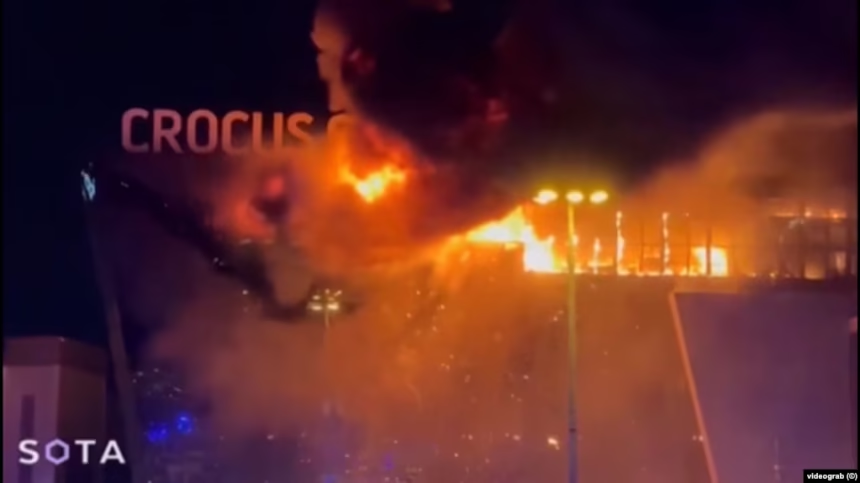The trial of 19 suspects, including several from Tajikistan, charged in connection with the deadly 2024 Crocus City Hall terrorist attack near Moscow, begins today amid rising anti-immigrant sentiment targeting Central Asian communities in Russia.
The March 2024 assault claimed the lives of over 140 people and left more than 550 injured, making it the deadliest attack in Russia in years. The attack was claimed by Islamic State-Khorasan (ISIS-K), an affiliate known for recruiting heavily among Central Asians.
Court documents reveal that four main defendants — all Tajik nationals — along with 15 alleged accomplices, face charges including organizing, training for, assisting, and carrying out a terrorist act.
The attackers’ ethnic background has fueled a surge in ethnic profiling, arbitrary detentions, and increased xenophobic violence by far-right groups across Russia. When the suspects first appeared in court in March 2024, they showed clear signs of having been physically beaten.
In response to the attack, Russian authorities toughened laws in mid-2024, granting police expanded powers to expel migrants without a court order.
A March 2025 Human Rights Watch (HRW) report documented coordinated physical assaults by far-right groups on Central Asian workers in sectors such as construction and maintenance. HRW noted that Russian authorities have failed to condemn the rising xenophobic attacks, while simultaneously escalating crackdowns on migrant communities.
Despite Russia’s heavy reliance on migrant labor — an estimated 3.3 million workers from Central Asia were employed in Russia in 2024 — the Kremlin continues to expand its surveillance measures. Beginning September 1, Moscow will launch an experimental digital monitoring system combining biometric registration, location tracking, and enhanced police checks to monitor migrant workers in real time.
The Crocus City Hall attack stands as Russia’s deadliest terrorist attack since the 2004 Beslan school siege, which killed 333 people, including many children.







